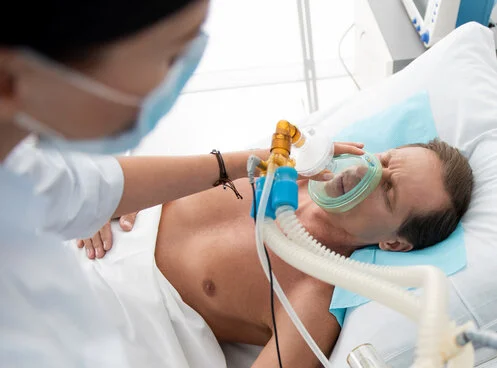Coming to accept our situation, with all its ups and downs, helps us begin preparing for our earthly end, death itself, prompting us to take up core questions about life’s meaning.
Read MoreWe are being cajoled as a society into believing the contradiction that ‘death with dignity’ means killing ourselves, or letting someone else kill us.
Read MoreRead More... we should generally prefer a natural explanation for a phenomenon, unless and until the evidence for a supernatural explanation becomes truly compelling or overwhelming.
In considering our own death, we may entertain a strong wish that there be no more sufferings on the other side, especially when it comes to justifying our decision to engage in physician-assisted suicide. Simply having such a wish, however, does not actually make it so.
Read MoreEven to be “slightly alive” is still to be alive. If the language of the UDDA ends up being changed to allow for a declaration of brain death even with continued hypothalamic functioning, individuals who are not-quite-dead will be treated as if they were already dead.
Read MoreWe need to “lovingly support our family members through the dying process and to make careful and morally correct decisions on their behalf as they decline in health.”
Read MoreCareful attention to pain management is of paramount importance in end-of-life care and supports both the patient and the family in a dignified way during the dying process.
Read MoreOur focus should be on the benefits and burdens of a proposed medical intervention rather than on trying to impose our own conclusion that certain individuals no longer have enough value or meaning in their lives.
Read MoreWhen ventilators are in short supply, several key ethical principles can assist clinicians.
Read MoreEach of our loving human gestures speaks volumes about the singular power of love to overcome fear, and to strengthen us in adversity.
Read MoreWe need to attend carefully to the graced realities we regularly handle lest we end up squandering or losing our sense of the sacred.
Read MoreWhen we find ourselves nailed to our hospital bed, it can become an important personal moment for us to engage the possibility of a spiritual transformation opening before us.
Read MoreThis approach seeks to set up a particular supportive environment in which all the members of the family can receive the child following delivery, hold and name the newborn, and fully acknowledge his or her brief but meaningful life.
Read MoreWhile ending our life may seem to offer an ‘escape valve’ for the serious pressures and sufferings we face, we do well to consider the real effects of this choice both in this life, and in the life to come.
Read MoreWe can legitimately choose between apples and oranges, but not between milk and drain cleaner. If, in the name of autonomy, we were to ingest drain cleaner on purpose to make ourselves ill, we would actually undermine and surrender our personal autonomy.
Read MoreAlthough there are not any fundamental moral objections to donating our bodies to science, certain details of how the donation is carried out are important.
Read MoreProper disposition and care of another’s body also manifests our Christian faith in the resurrection of that body on the Last Day.
Read MoreOur later years can powerfully provoke us to come to terms with our destiny and with higher truths.
Read MoreSuicide hotlines are open 24 hours a day because we seek to prevent as many deaths as we can. We treat as heroes those who walk along bridges or climb tall buildings and try to talk people down.
Read MoreBy spiritually embracing in God that specific path to death, our freedom is elevated to new heights; indeed, we “achieve control” in the most important way possible, through willed surrender and radical gift in our innermost depths.
Read More




















